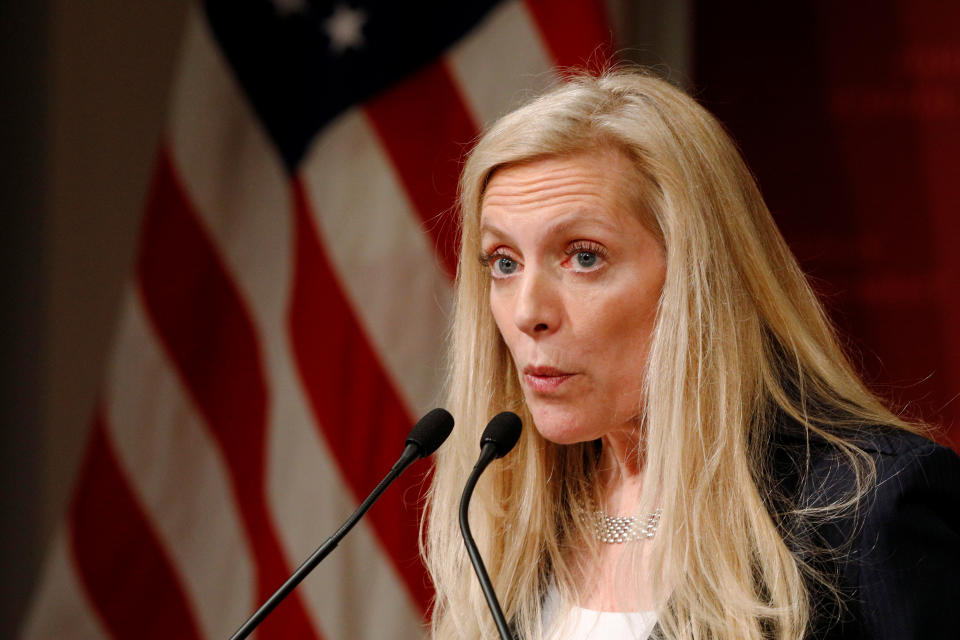Central banks see ‘impending arrival’ of their own digital currencies

A cohort of central banks from around the world say the “impending arrival” of their own digital currencies will come soon.
A report from the Bank of International Settlements, which facilitates coordination among 60 central banks around the world, on Thursday released a survey of central banks detailing optimism over launching their own cryptocurrencies soon.
“Central banks collectively representing a fifth of the world’s population are likely to issue a general purpose [central bank digital currency] in the next three years,” the report read.
In a survey done in 2019, 80% of central bank respondents said they are doing some work on their own digital currencies, up from 70% when asked the same question in 2018.
About 10% of central banks say they will likely issue a central bank digital currency in the short-term, twice as many as last year. Twenty percent said they would issue one in the medium-term.
Although central bank-designed digital currencies could be implemented in different forms, central banks are particularly interested in “general purpose” tokens that users could hold as digital cash for use in retail transactions. At the wholesale level, digital cash already exists in the form of interbank payments or securities settlements in which no hard cash actually changes hands.
The central banks cited a wide variety of reasons for creating their own general purpose digital currencies.

Among emerging markets, central banks said payments safety and financial inclusion make a digital currency attractive. Hard cash makes anti-money laundering efforts difficult, but for those lawfully moving cash around the world, wire transfer fees can be expensive.
Emerging markets were also motivated by the monetary policy implications of a digital currency. Central banks would, in theory, have more control over the money supply if there were less hard cash in circulation.
Legal authority remains a question
By comparison, advanced economies reported fewer motivations in issuing central bank digital currencies.
But central banks across the board reported concerns over whether or not their respective governments allow them to legally create a central bank digital currency at all. A third reported they do not have the authority while 40% remain unsure if they have the authority.
In the United States, the Federal Reserve has looked at its own digital currency, but Fed Governor Lael Brainard said it is unclear if it has the authority to issue a digital currency and digital wallets for use by the public.
“At the Federal Reserve, we look forward to collaborating with other jurisdictions as we continue to analyze the potential benefits and costs of central bank digital currencies,” Brainard said in December.
Central banks are finding themselves in a race with Facebook’s Libra project, which seeks to create its own cross-border cryptocurrency backed by a basket of currencies. But Libra has faced an exodus of members from its founding class, with the most recent departure being telecom giant Vodafone.
Libra hoped to launch in the first half of 2020 but David Marcus, who is heading the project, told Yahoo Finance in October that it will not launch until it receives all the requisite regulatory approval.
Brian Cheung is a reporter covering the banking industry and the intersection of finance and policy for Yahoo Finance. You can follow him on Twitter @bcheungz.
Guggenheim's Scott Minerd: Fed liquidity could create new bubble
Former FDIC Chair: Warren is 'best candidate' on bank regulation
Strong bank earnings boosted by the American consumer — and heavy buybacks
Trump says he'll nominate Shelton, Waller to remaining Federal Reserve board seats
'This is the new normal': California businesses pessimistic on phase 2 deal
Read the latest financial and business news from Yahoo Finance
Follow Yahoo Finance on Twitter, Facebook, Instagram, Flipboard, SmartNews, LinkedIn, YouTube, and reddit.

 Yahoo Finance
Yahoo Finance 
